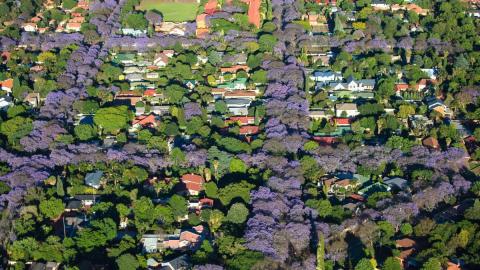
By Jane Flanagan
An invasive beetle from Asia that has infested trees lining the streets of Johannesburg’s most exclusive suburbs is sweeping across South Africa, and scientists are powerless to stop it. The only defense is to cut down and burn infected trees in the city, one of the largest urban forests in the world.
It is estimated that half a million of Johannesburg’s ten million trees will be invaded by the polyphagous shot hole borer, which is also wreaking havoc in eight of the country’s nine provinces. It could soon cross borders to blight forests elsewhere in Africa.
The beetle, which is smaller than a sesame seed and has devastated more than 200 tree species worldwide, bores tunnels into trunks to lay eggs and carries a fungus to feed to its larvae that cuts off the trees’ vascular system. Marcus Byrne, an entomologist at the University of the Witwatersrand, said: “When it introduces that fungus into trees that have never experienced it before, it threatens those trees with illness or death.”
In its native southeast Asia, the beetle and fungus do not cause serious damage because tree species there have evolved to tolerate them. “But in a fresh ecosystem like South Africa, it has no natural threats so has free rein,” Professor Byrne said.

